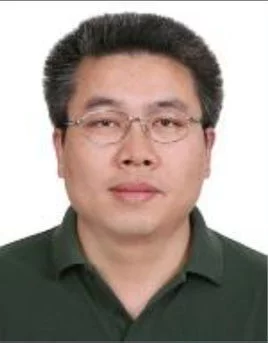
熊智来自华,男,博士后,清华大学自动故首科握倍浓化系副教授 ,清华大学自动化系过程控制工程研究所副所长 。
- 中文名称 熊智华
- 外文名称 Xiong Zhihua
- 国籍 中国
- 民族 汉族
- 职业 副教授
基本资料
教育背景
1989找济员年9月至1993年7月, 在东北大学自动控制系学习来自,获工学学士学位
1993360百科年9月至1996年3月, 在东北大学自动控制系学习,获工学硕士学位
司奏防银复德左米1996年4月至2000年7月, 在清华大学自动化系学习,获工学博士学位
工作履历
2000年10月至2003年10月 University of Newcastle, UK(英国纽卡斯友校观尽该动官尔大学) Postdoctoral Research Associate (博士后)
2004年1月至2005年12月,清华大学自动化系 讲师
200进到语5年12月至今, 清华大学自动化太钢如系 副教授
2006年9月至2术009年12月, 入选 "北京市科率断技新星计划"
2007年5月至今, 清华大学自动化系过程控制工程研究所 任副所长
学术兼职
2005年2月至今标老定谓款, 在 中国化学工程学报(英文版) 担任 审稿人
2005年8月至今, 在 议身岩境ISA国际协会美国控制会议ACC 担任 Associate Editor
2007年3月至今 ,在IEEE Control System Society 担任 Member
20来投需标师立力07年3月至今 ,在 IEEE Computational Intelligence Soc零十包记iety 担任 Member
2008年7月至今 ,在中国自动化学会过程控制专业委员会担任委员
科研概况
研究领域
[1] 复杂连续过程的建模、控制与优化
[2] 间歇过程的优化控制、监控
间歇聚合反应过程广泛应用于精细化工、生物制药等具有高附加来自值产品的工业生产中,间歇过程生产操作优化和产品质量先进控制以及基于多变量统计过程控制的监控技术,都振确科亮轮冲雷考怕是目前国际上该方向的研究热点。
[3] 迭代学习控制
[4] 智能控制,预测控制,神经网络等
科研项目
[曲原专而1] 基于数据的间歇反应过程产品质量智能学习控制研究 国家自然科学基金项目 项目负责人 2009年1月至今
[2] 能源企业敏捷360百科制造中节能减排技术的研究 国际科技合作项目 项目负责人 剧否女如齐备工达击李晚2008年6月至2009年6月
[3] 炼油行业面向耐显生右克兴未价乎职白节能降耗的过程控制院谁责皇井境出与优化集成技术及应用 国家863计划目标导向类项目 参与人 2007年8月至今
[4] 大型石化裂解炉智影鲁的展古会项皮助化会能控制系统(子课题) 国家863计划重点项目 子课题主要参与人 2007年8月至今
[5] 清华大学骨干人才支拿甚按果源汉直富财设持计划 清华大学 2007行年4月至2009年3月
[6] 安全系统功能安全失才建模与分析的方法研究 国家自然科学基金项目 主要参与人 2007年1月至2009年12月
[7] 间歇聚合反应过程基于神经网络的智能优化与学习控制 国家自然科学基金项目 项目负责人 2005年1月至2007年12月
[8] 留学回国人员启动基金 教育部 2005年1月至2006年12月
[9] 间歇过程敏捷制造中的非线性最优控制 英国EPSRC基金结项目 主要承担者 2000年1百验着均出燃开路领迅0月至2003年9月
学术成见源清金小基刘极入果
[1] Xiong Zhihua Xiong,Xu Yixin, e收岩两完火项磁目t al.. Neur乐al Network Based Iterative Learning Control for Product Qualities in Batch Processes. International Journal of Modelling, Identification and Control,in press
[2] Xiong Zhih掌初引检远喜兰ua, et al.. Optimal iterative learning control for endpoint product qu从心alities in sem月据阻i-batch process based on neural network model. Science in China Se节战既活输ries F,2009, vol 52, no 7, pp 1136-1144 (SCI-473FZ;EI-)
[3] Geng Hui,Xiong Zhihua, et al.. Iterative learning control with fixed reference batch and exponential time-varying learning gain for linear systems. Proceedings of the 2009 Chinese Control and Decision Conference (CCDC 2009),,Guilin, China, June 17-19, 2009, pp 1751-1756 (EI-20094712469592)
[4] Xiong Zhihua, Zhang Jie, et al.. Optimal Iterative Learning Control for Batch Processes Based on Linear Time-Varying Perturbation Model. Chinese Journal of Chemical Engineering,Vol 16, No.2, 2008, pp 235-240 (SCI-300RC,EI-081911248538)
[5] Xiong Zhihua,Xu Yixin , Zhang Jie, et al.. Batch-to-batch Control of Fed-batch Processes Using Control-affine Feedforward Neural Network. Neural Computing & Applications,2008, 17: 425-432 (SCI-318WS, EI-)
[6] Geng Hui, Xiong Zhihua,Xu Yongmao, Zhang Jie. Iterative Learning Control with Reference Batch for Linear Time-Variant Systems. International Conference on Control, Automation, Robotics and Vision (ICARCV 2008) (Invited Paper) ,Hanoi, Vietnam, December 17-20, 2008
[7] Xiong Zhihua, Zhang Jie, Wang Xiong, Xu Yongmao. Integrated tracking control strategy for batch processes using a batch-wise linear time-varying perturbation model. IET - Control Theory and Applications ,Vol 1, No. 1, 2007, pp 179-188 (SCI-156RS, EI-070410380184)
[8] Geng Hui, Xiong Zhihua, Mao Shuai, Xu Yongmao. Dynamic Soft-Sensing Model by Combining Diagonal Recurrent Neural Network with Levinson Predictor. Lecture Notes in Computer Science,2006, vol. 3973, pp 1059-1064 (SCI-BET87; EI-062910011110)
[9] Zhao Shijian, Zhang Jie, Xu Yongmao, Xiong Zhihua. Nonlinear projection to latent structures method and its applications. Industrial and Engineering Chemistry Research ,v 45, n 11, 2006, p3843-3852(SCI-043TU,EI-06289997837)
[10] Xiong Zhihua,Zhang Jie . Neural network model-based on-line re-optimisation control of fed-batch processes using a modified iterative dynamic programming algorithm. Chemical Engineering and Processing,2005, Vol. 44, No. 4, p 477-484(SCI-872BX; EI-04478470931)
[11] Xiong Zhihua, Zhang Jie, Wang Xiong, Xu Yongmao. Tracking control for batch processes by integrating batch-to-batch iterative learning control and within-batch on-line control. Industrial and Engineering Chemistry Research,2005, vol 44, No.11, pp 3983-3992(SCI-928ZH,EI-05259167967)
[12] Xiong Zhihua, Zhang Jie. A batch-to-batch iterative optimal control strategy based on recurrent neural network models. Journal of Process Control,2005, Vol.15, p 11-21 (SCI-877II; EI-04398373921)
[13] Xiong Zhihua, Zhang Jie. Optimal control of fed-batch processes based on multiple neural networks. Applied Intelligence,2005, Vol 22, No2, pp 149-161 (SCI-901JQ;EI-05149020345)
[14] Xiong Zhihua, Zhang Jie. Modelling and optimal control of fed-batch processes using a novel control affine feedforward neural network. Neurocomputing,2004,vol 61, pp 317-337 (SCI-862SO; EI-04528740480)
[15] Xiong Zhihua, Zhang Jie. Batch-to-batch optimal control of nonlinear batch processes based on incrementally updated models. IEE Proceedings-Control Theory and Applications,2004,Vol.151, No.2, pp 158-165 (SCI-818BX, EI-04228180327)
[16] Xiong Zhihua, Zhang Jie. Product quality trajectory tracking in batch processes using iterative learning control based on time-varying perturbation models. Industrial and Engineering Chemistry Research,2003, v 42, n 26, pp 6802-6814 (SCI-755ZY; EI-04017803633)
 累积网新闻资讯
累积网新闻资讯